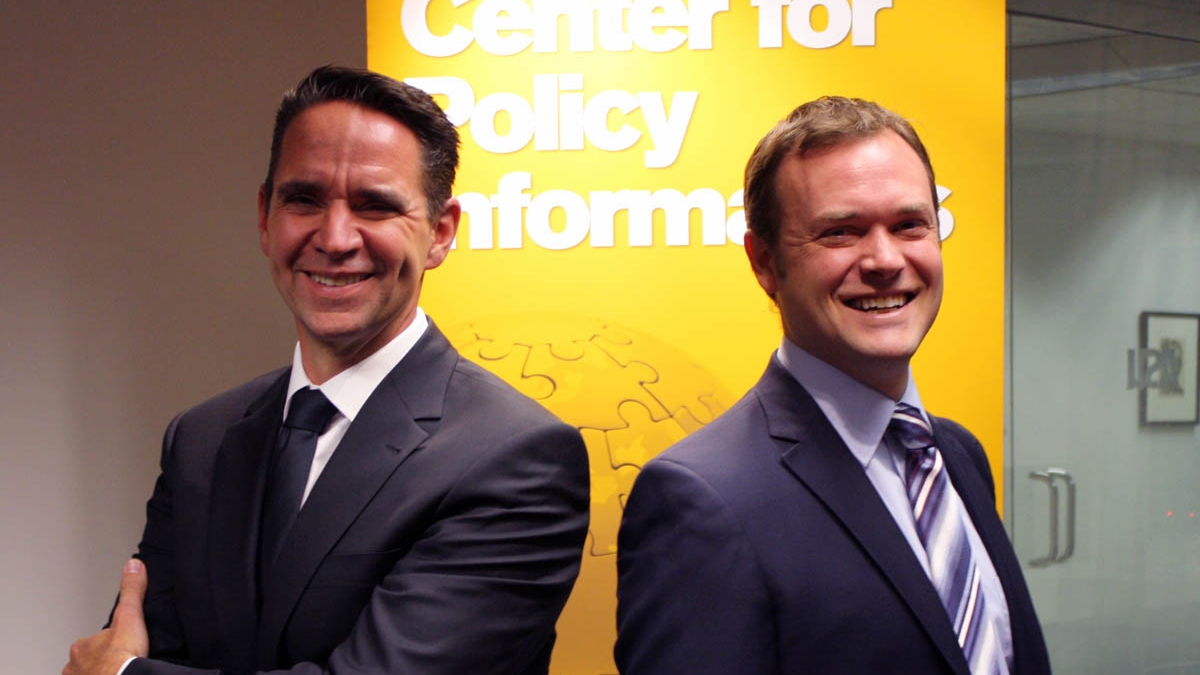ASU joins elite universities to design modern governance

Erik Johnston, director of the Center for Policy Informatics at Arizona State University, will join an elite group of international experts on a major effort to improve governance. Along with Center for Policy Informatics colleague Justin Longo, Johnston will study new uses of technologies, data and public engagement to design innovative government programs with evidence of what works best.
“A lot of people see government grinding to a halt with the latest Congress being the least effective in history, and they think that they can do it better,” says Johnston. “We’re creating pathways that allow them to do just that. If you have a good idea or a valuable skill set – if you sense that you or a group of people like you can make a meaningful difference – we’re giving you the mechanisms to connect, to act and to create better communities.”
Officially called the MacArthur Foundation Research Network on Opening Governance, the project will be spearheaded by the Governance Lab (The GovLab) at New York University. The three-year project was made possible by a $5 million grant from the John D. and Catherine T. MacArthur Foundation, as well as a gift from Google.org.
The Research Network will study what happens when governments and institutions open themselves up to diverse participation. Network members include 12 experts (see below) in computer science, political science, policy informatics, social psychology and philosophy, law and communications. This core group is complemented by an advisory network of academics, technologists, and current and former government officials. Together, they will assess existing innovations in governing, and experiment with new practices and how institutions make decisions at the local, national and international levels.
“We want to arm policymakers and practitioners with evidence of what works and what does not, which is vital to drive innovation, re-establish legitimacy and more effectively target scarce resources to solve today’s problems,” says professor Beth Simone Noveck, network chair and author of "Wiki Government: How Technology Can Make Government Better, Democracy Stronger and Citi More Powerful."
Part of the College of Public Programs in downtown Phoenix, the Center for Policy Informatics is addressing governance challenges and their consequences, which span the seeming inability of governments to solve complex problems and the disaffection of people from their governments. The center seeks approaches that enable our governance systems to address increasingly complex challenges and to meet the rising expectations of people to be full participants in their communities. Center for Policy Informatics approaches these challenges by applying a combination of complex systems modeling, crowdsourcing, participatory platforms and citizen science to explore complex governance challenges in domains that include education, environment and health.
The MacArthur Research Network on Opening Governance comprises:
Chair: Beth Simone Noveck
Network coordinator: Andrew Young
Chief of research: Stefaan Verhulst
Faculty members:
• Sir Tim Berners-Lee (Massachusetts Institute of Technology (MIT)/University of Southampton, UK)
• Deborah Estrin (Cornell Tech/Weill Cornell Medical College)
• Erik Johnston (Arizona State University)
• Henry Farrell (George Washington University)
• Sheena S. Iyengar (Columbia Business School/Jerome A. Chazen Institute of International Business)
• Karim Lakhani (Harvard Business School)
• Anita McGahan (University of Toronto)
• Cosma Shalizi (Carnegie Mellon/Santa Fe Institute)
Institutional members:
• Christian Bason and Jesper Christiansen (MindLab, Denmark)
• Geoff Mulgan (National Endowment for Science Technology and the Arts – NESTA, United Kingdom)
• Lee Rainie (Pew Research Center)